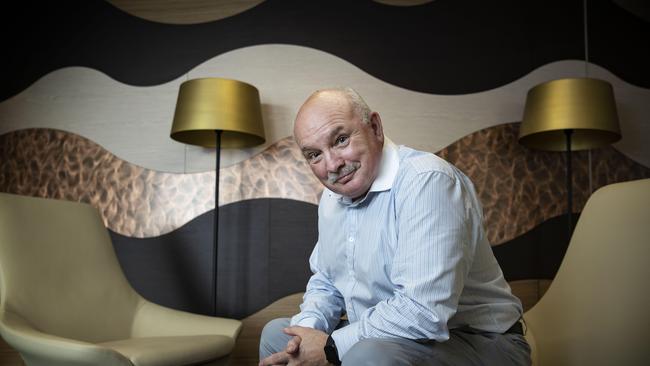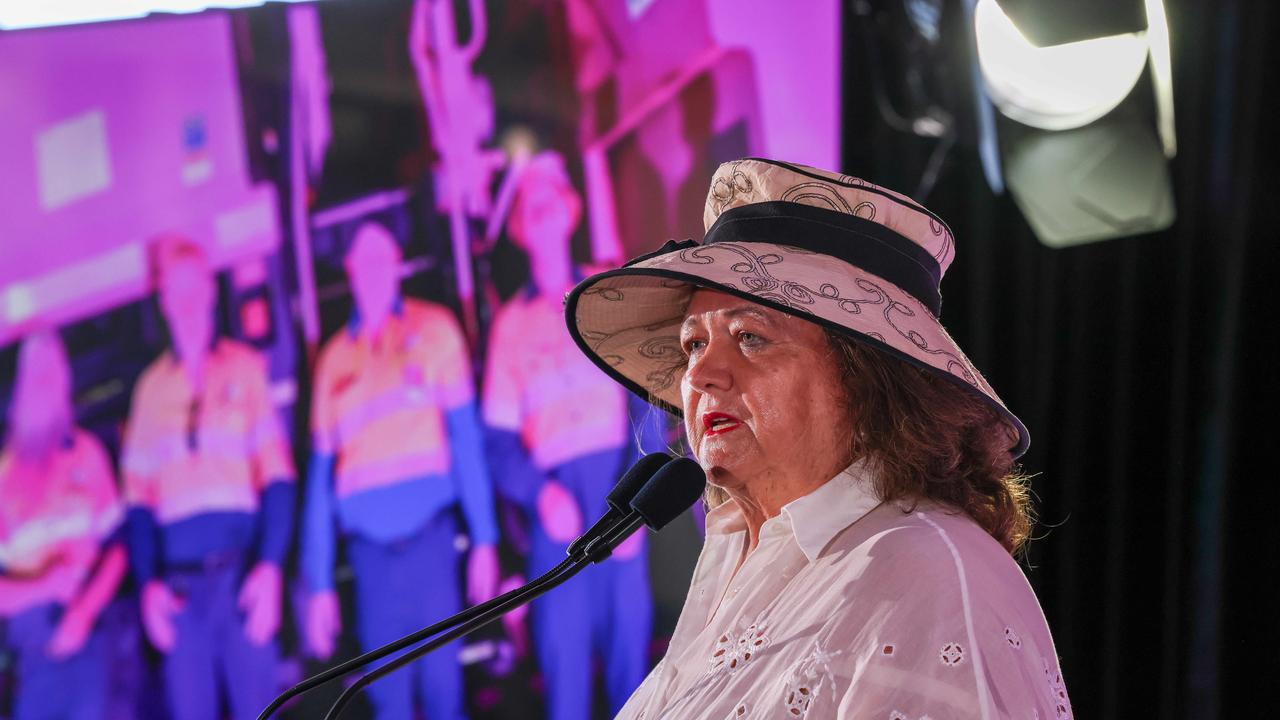Oil Search’s Peter Botten leaves PNG legacy
After more than 25 years as Oil Search CEO, Peter Botten departs leaving a major legacy in PNG.

Oil Search’s Peter Botten earlier this year celebrated a very rare ASX milestone: his 25th year as chief executive, in a corporate environment where five years is viewed as a good innings.
As Botten prepares to step down, handing the plucky LNG producer to his successor Keiran Wulff, Botten reflects on his company’s position in PNG, including tying together the $19 billion Papua LNG Agreement signed in April. Validated in August by a new government, it stands to trigger a doubling of gas production in Papua New Guinea in five years.
Papua LNG is a joint venture between French oil major Total, Exxon Mobil Corp and Oil Search to develop gas fields offshore PNG. The agreement became a political flashpoint after former PNG Prime Minister Peter O’Neill was ousted in May, following a backlash over the how resource riches were distributed.
Founded in 1929, Oil Search had lost fortunes over the decades as it searched for oil, but now capitalised at $11 billion, is worth 55 times more than when Botten arrived.
It posted a 2018 net profit of $US341.2 million, 13 per cent above the previous year, with revenue up six per cent to $US1.535 billion, with a price rise for liquefied natural gas and crude oil helping offset a decline in full-year production due to a devastating earthquake in the PNG Highlands.
Released in August, its interim numbers saw a more than doubling of first half profit to $US162 million helped by a 37 per cent increase in sales volumes.
Landowners of the challenging Southern Highlands terrain, which has been the heartland of Oil Search’s output of oil and gas, are also among the celebrants of Botten’s profitable corporate longevity, as are Papua New Guineans more generally, for the company is the country’s biggest taxpayer.
Earlier this year, Botten — originally from England — became a Companion of the Order of Australia.
His company has in effect been the rainmaker which first made PNG an oil province, and then — crucially for its economic future — a major gas producer and exporter.
Fittingly, Oil Search used its can-do PNG construction skills to build — under a tax credit scheme — the $82 million centre designed in the shape of a traditional lakatoi canoe, off Port Moresby’s Ela Beach, where many of the world’s major leaders, including China’s Xi Jinping and Japan’s Shinzo Abe, met for last November’s APEC summit.
With ANZ recently selling its 15-branch retail network in PNG, and with Rio Tinto and BHP no longer engaged there, Oil Search has become the most prominent ASX-listed presence in the country.
It is taking on that role as China is rapidly stepping up its presence. Botten says that “Chinese companies now have a very high profile in Port Moresby and around the country,” with Beijing making significant direct investments as well as through “various loans and financing arrangements”.
China “works that profile extremely well,” he says, with its involvement “accelerating dramatically in the last couple of years”.
New bus stops around the capital are flagged with China Aid signs, including one right outside the Australian high commission in Waigani.
But Botten points out that many Australian companies remain highly committed to PNG, including especially gold producer Newcrest, which is investing massively with South African joint venturer Harmony Gold in developing the huge Wafi-Golpu project.
The PNG government has in recent years has sought to encourage diversification, with a greater role played by agriculture and by small and medium companies.
But as Botten points out, the resource sector “still drives the economy and its fundamentals,” and will continue to do so “as far as we can see,” although he applauds efforts to diversify as “a smart move.”
Unfortunately, soon after the initial LNG project — developed by Exxon Mobil — began exporting, the market price of hydrocarbons slumped, reducing revenues not only for the companies in the venture but also for the state. There was some compensation, Botten said, from an “outstanding” production performance — but price cycles can be expected to fluctuate widely during the history of such vast projects.
The PNG government, he says, has made a substantial start of ensuring the benefits from LNG are appropriately distributed. “I think they have improved the system, though there’s further work to do.”
Oil Search owns 29 per cent of the established PNG LNG operated by ExxonMobil, which produces more than 8.6 million tonnes of gas a year, and holds major shares of other gas projects in the final stages of exploration — the new Papua LNG venture an expansion of PNG LNG by ExxonMobil — with a similar projected combined output.
The most costly part of the required infrastructure for these developments has already been essentially met, with the same terminal — on the outskirts of Port Moresby — built by PNG LNG set to be expanded to produce three more gas “trains,” two by Papua and one more by PNG LNG itself.
With new capacity coming on stream earlier this decade, LNG markets have enjoyed oversupply, especially in East Asia, says Botten. — but demand has also strengthened, especially in China but also elsewhere, taking advantage of a relatively low energy price and driven by new environmental requirements.
“Demand has outstripped many pundits’ forecasts,” he says, “especially in terms of offtake. We are moving towards balanced supply, but given the long lead-times for new output, supply will be tight from 2022-2024. So there’s a strong need to build new capacity.”
With its core infrastructure already built, PNG’s expansion to trains two and three will prove capital effective and efficient, Botten says. “And it’s being built in a relatively more benign environment,” with the industry there maturing, and the logistics easier.
He says: “A lot of people were saying that it would be very challenging for PNG to deliver a world class LNG project, but it has proved some of those doubters wrong.” This has extended confidence in the people of PNG to develop other industries too — as well as providing the country with significant quantities of competitively priced gas to provide the energy needed to help drive those opportunities, including in added-value agriculture and fisheries.
Oil Search, with the state and state-owned Kumul Petroleum are completing a gas-fired power station in Port Moresby which will supply significant energy into the grid in the capital, helping the phase-out of heavy-oil-generated power, whose cost says Botten is “unsustainably high,” besides environmental considerations. For some time, the company has provided power into the Highlands-to-Lae grid from its Kutubu plant in Southern Highlands.
The breakdown of ownership in the new LNG projects between the state, landowners and developers, and the details of the fiscal regime were finalised in April and validated by the new PNG government under prime minister James Marape which reviewed the terms of the agreement.
It’s necessary for the demonstrated benefits of such major developments to be felt not just by the local landowners but by the country as a whole, Botten says, with the economy more than doubling in the last decade, since gas construction began.
This is a complex challenge, he says, since it starts with “identifying the owners in the project areas, and the ownership changes that have taken place. People move in and out of these areas, and when there are greater opportunities they are more likely to move in — so the potential recipients” of royalties and other benefits “change over time.”
Oil production began in 1992, requiring continuing discussions to resolve ownership disputes. A decade ago clan structures were well defined, with respect for tribal leaders entrenched. But now the burgeoning population, some well-educated, has eroded former patterns of clan discipline, he says.
“Landowners have taken out injunctions to maintain or protect their rights … There is no easy fix” given the cultural background and the personal complexities, Botten says. Previously, those wishing to discuss land use could identify three or four people as key leaders — but now, such a group might include 25 people with important, articulate viewpoints. “The power base has spread,” in part as communication methods have diversified, with mobile phone access now ubiquitous.
The calamitous 7.5 magnitude earthquake that struck the Southern Highlands and neighbouring provinces in February last year added “inordinate stress on communities, and on government efforts to reconstruct.”
Oil Search’s operations were at the epicentre. The production facilities were designed to cope with worse quakes, and survived comparatively intact. But crucial infrastructure such as power was “hammered very badly,” and Botten says “the impact was far worse in the communities,” including many devastated by land slips. “Those on the edge of valleys got swept away, I’ve never seen anything like it.”
Hospitals and schools were destroyed, and while some roads have since been repaired, “many remote valleys are still cut off, with bridges down,” and so access may take years to restore.
There is a resulting opportunity to upgrade some infrastructure, with newer and better replacements. But up to 400 people were killed.
Much of the food, health care and other core needs of those people devastated by the quake, were met primarily via Oil Search and the logistics network it rapidly summoned, with Botten personally playing a major leadership role. It was this effort, capping decades of involvement in community care in PNG, that led to his recent AO, following the CBE awarded on the recommendation of the PNG government.
Bizarrely — and underlining the distance that had grown between PNG and the Canberra elite until both the federal government promised to re-engage — the council of the Australian National University in 2014 ordered the divestment of seven stocks on “social responsibility” grounds.
These included Newcrest, which is heading to become one of PNG’s biggest and best-paying employers, and Oil Search — which under Botten has been widely commended inside PNG and internationally as an example of patient construction of community engagement and of earning its “social licence” to operate. He chairs the Oil Search Foundation which drives this involvement.
Botten points out that in about 20 years, PNG’s population is expected to reach 13-15 million — “whose legitimate aspirations, if they are to be met, will require the chasing of a broad increase in economic capacity,” with infrastructure and education needs to the fore. Those costs will need to be met significantly through the resource industry.
More recently Botten has extended his experience of operating in tough physical conditions and of building a social licence with indigenous landowners, to a new frontier, an area very far from tropical PNG — north Alaska.





To join the conversation, please log in. Don't have an account? Register
Join the conversation, you are commenting as Logout